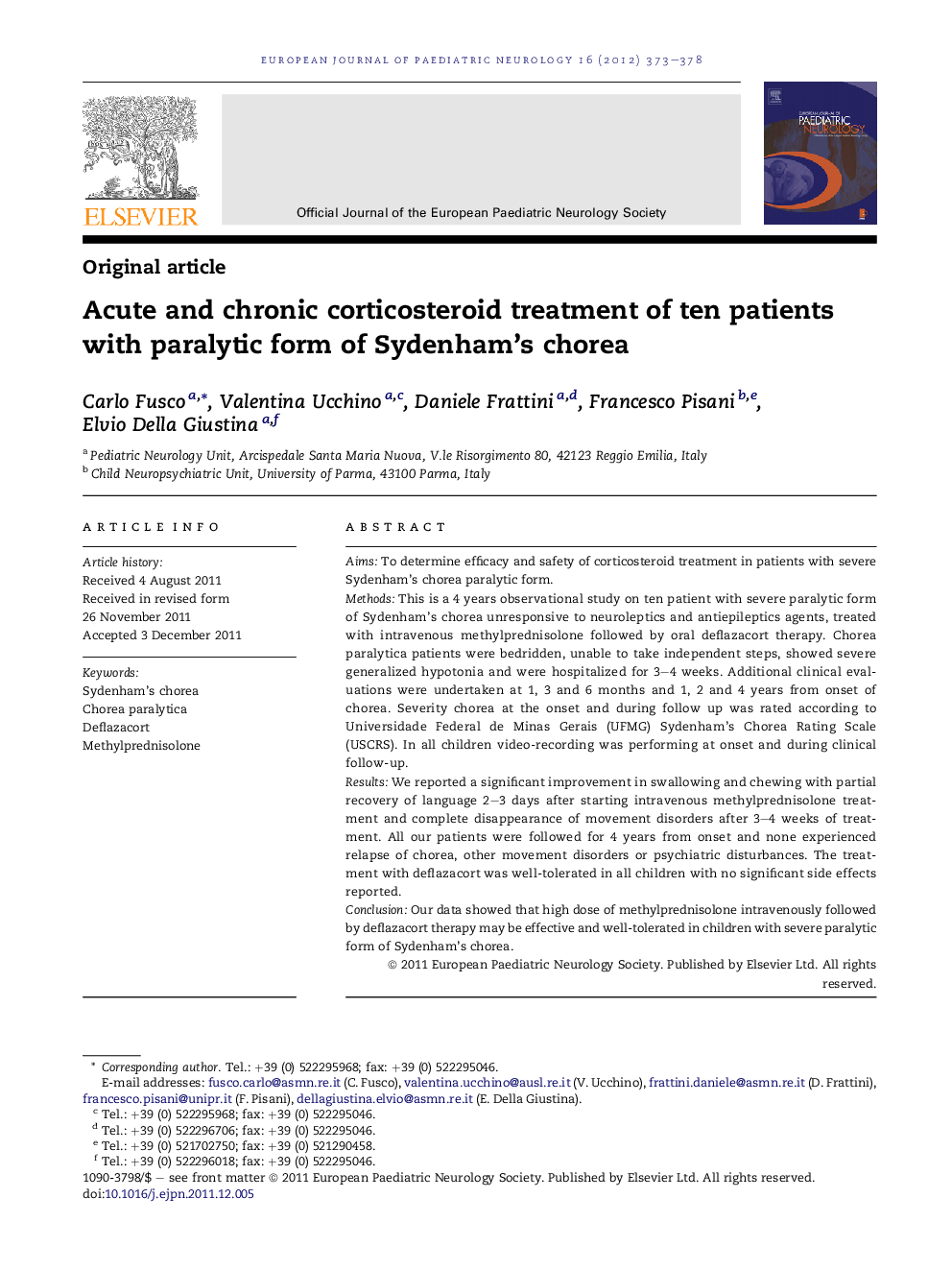| Article ID | Journal | Published Year | Pages | File Type |
|---|---|---|---|---|
| 3054221 | European Journal of Paediatric Neurology | 2012 | 6 Pages |
AimsTo determine efficacy and safety of corticosteroid treatment in patients with severe Sydenham’s chorea paralytic form.MethodsThis is a 4 years observational study on ten patient with severe paralytic form of Sydenham’s chorea unresponsive to neuroleptics and antiepileptics agents, treated with intravenous methylprednisolone followed by oral deflazacort therapy. Chorea paralytica patients were bedridden, unable to take independent steps, showed severe generalized hypotonia and were hospitalized for 3–4 weeks. Additional clinical evaluations were undertaken at 1, 3 and 6 months and 1, 2 and 4 years from onset of chorea. Severity chorea at the onset and during follow up was rated according to Universidade Federal de Minas Gerais (UFMG) Sydenham’s Chorea Rating Scale (USCRS). In all children video-recording was performing at onset and during clinical follow-up.ResultsWe reported a significant improvement in swallowing and chewing with partial recovery of language 2–3 days after starting intravenous methylprednisolone treatment and complete disappearance of movement disorders after 3–4 weeks of treatment. All our patients were followed for 4 years from onset and none experienced relapse of chorea, other movement disorders or psychiatric disturbances. The treatment with deflazacort was well-tolerated in all children with no significant side effects reported.ConclusionOur data showed that high dose of methylprednisolone intravenously followed by deflazacort therapy may be effective and well-tolerated in children with severe paralytic form of Sydenham’s chorea.
